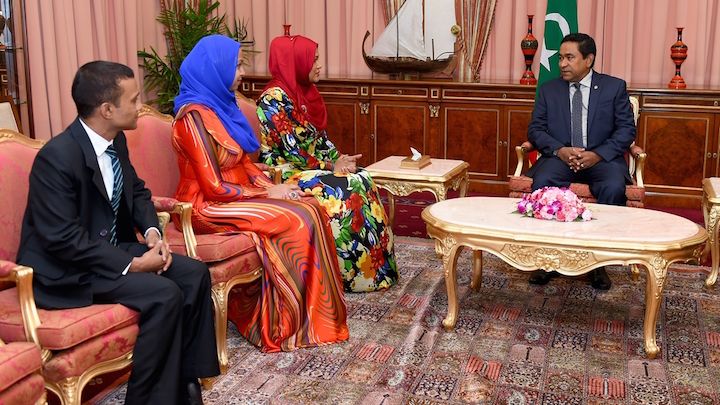Pro-democracy NGO warns of Maldives backsliding into repression
“The past seven years have seen the Maldives leap forward and just as quickly regress heavily in the rights arena,” the MDN said in a statement released today on the occasion of International Human Rights Day. “The rights to association, assembly, expression and life can no longer be assured for the people living in the Maldives and this is unacceptable for human rights defenders.”

10 Dec 2015, 09:00
The Maldives is backsliding into repression with the government stifling dissent and restricting constitutional rights, human rights NGO Maldivian Democracy Network has warned.
“The past seven years have seen the Maldives leap forward and just as quickly regress heavily in the rights arena,” the MDN said in a statement released today on the occasion of International Human Rights Day, referring to the adoption of a democratic constitution and the first multi-party election in 2008.
“The rights to association, assembly, expression and life can no longer be assured for the people living in the Maldives and this is unacceptable for human rights defenders.
“The Maldives have been highlighted on the corruption perception index, marked as a human trafficking hotspot, a country rampant with child abuse and domestic violence, a terrorist breeding ground and most recently – one of the few democratic countries that have reversed its de facto ban on capital punishment.”
Become a member
Get full access to our archive and personalise your experience.
Already a member?
Discussion
No comments yet. Be the first to share your thoughts!
No comments yet. Be the first to join the conversation!
Join the Conversation
Sign in to share your thoughts under an alias and take part in the discussion. Independent journalism thrives on open, respectful debate — your voice matters.




